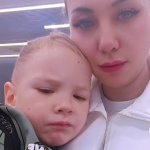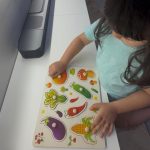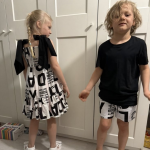How the Challenges of Autistic People Are Reflected in Cinema
The following ranking was compiled — importantly — with input from autistic individuals themselves, representatives of advocacy organizations, and film critics. All listed works received equally high praise, so the numbering is for convenience only.
Classic and Iconic Films
- Temple Grandin (2010)
Based on the real-life story of a biologist with autism, this film portrays her struggle with sensory sensitivities, her development of innovations in livestock handling, and her fight for social acceptance. Temple Grandin herself consulted on the production, helping accurately convey visual thinking. The film won five Emmy Awards and a Golden Globe for Claire Danes, who played the lead role. - Rain Man (1988)
Now considered a legend in its own right, this film was the first to draw massive public attention to autism. Dustin Hoffman played Raymond, a savant with extraordinary memory. While some argue that the film promotes the stereotype that all autistic individuals are geniuses, it nevertheless won four Academy Awards.
Films That Autistic People Say Reflect Them More Accurately
- Please Stand By (2017)
This movie tells the story of a young autistic woman who escapes from a care facility and travels across the S. to submit her screenplay to a contest. Female autistic characters are rarely featured in films, and the story focuses on the heroine’s interests and her journey to overcome fears — without leaning on the “genius” trope. - The Story of Luke (2012)
A rare example of realism, this film follows a young man with Asperger’s syndrome trying to find a job and love after the death of his guardians. It effectively shows common goals among autistic people — the pursuit of independence and forming close personal relationships. - Mary and Max (2009)
This animated black comedy centers around the correspondence between a young girl in Australia and a man in New York with Asperger’s syndrome. Though the style is humorous, it thoughtfully addresses the acceptance of neurodiversity as an essential part of one’s identity.
Films About Families and Relatives’ Experiences
- What’s Eating Gilbert Grape (1993)
This story follows a teenager caring for his brother, who has severe autism. Though the diagnosis is never explicitly stated, the film is symbolic of the challenges faced by families raising an autistic child. - The Specials (2019)
Based on true events, this film tells the story of two social workers who establish a center for teenagers with severe autism. It stands out for focusing on those actively making inclusion a reality, rather than just advocating in theory.
Contributions from Documentary Filmmakers
- The Reason I Jump (2020)
Based on the book by nonverbal autistic author Naoki Higashida, this documentary offers a sensory experience of the world through the eyes of five neurodivergent teenagers. It won the Audience Award at the Sundance Film Festival.
Television Series Featuring Autistic Characters
- Atypical (2017–2021)
This series follows a teenager seeking love and independence. Its strengths include both humor and its exploration of how autistic individuals often become emotionally distant from their families. - The Good Doctor (2017–2024)
The main character is a savant who becomes a brilliant surgeon despite his colleagues’ skepticism. The show realistically depicts sensory processing issues — though, in reality, these are rare among savants.
A Word of Thanks and a Look to the Future
Filmmakers deserve credit for continuing to spotlight autism as not only a medical issue but also a social one. Unfortunately, society is still not always ready to offer support or even basic understanding to those who are “different.” Until true inclusion becomes widespread, the most effective way to help autistic individuals may be to address the disorder and its symptoms directly.
One of the most promising, safe, and natural methods currently available is cell therapy. This innovative approach is based on stimulating the body’s regenerative abilities by transplanting a patient’s own stem cells — eliminating the risk of rejection. These cells can transform into any type of cell, replacing damaged ones with healthy alternatives. As a result, the nervous system and brain begin to function more normally, improving behavior and accelerating development in areas such as cognition, motor skills, and social interaction. In many cases, autism symptoms diminish significantly or even disappear entirely. The effects are long-lasting, and often lifelong, enhancing the effectiveness of additional supportive therapies.
Cell therapy has already proven effective and gained global recognition. Leading clinics around the world, including the Mardaleishvili Medical Center, are using it successfully. The clinic’s highly trained specialists and cutting-edge equipment ensure the best possible outcomes, while maintaining higher affordability compared to many other countries. Additional benefits include convenient location and support for planning the trip and accommodations during rehabilitation.
Cell therapy — a path to a healthy and fulfilling life!
Autism Treatment Center Videos
Autism treatment with own stem cells
Cord blood association congress
International Quality Crown
Autism Treatment Reviews
Autism treatment with own stem cells
The story of Alessandro (6 years old)
Autism Patient Testimonial - Stem Cell Treatment
Clients Testimonials

Lidiya — Elina’s mother Read More

Anna – Sasha’s mother Read More

Amirkhon’s father — Tokhir Read More

Dilana’s mother Read More

Irina and Stefan – Ilya’s parents Read More












